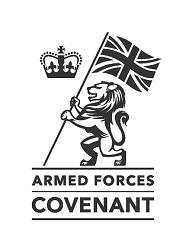|
|
|
Verdun {Page 3}...
The Battle of Verdun was fought from 21st February to 18th December 1916 between French and German armies, on the hills
north of Verdun-sur Meuse in Northeast France. This battle was significant for a number of reasons:
There was a documented estimate in 2,000 stating the casualties total for this battle to stand at 714,231;
377,231 French and 337,000 German. A staggering 70,000 per month of the battle. This was the longest and one of the most costly
battles in human history. More recent estimates increase the number of casualties to 976,000. ......... o
O o ......... If you need Military Bands or Assistance with Honouring Veterans - Please contact your local Royal British Legion. If sadly this is for a Military Funeral or Honouring Veterans at their Funeral, the best contact points are here. The Commonwealth War Graves Commission has the responsibility to ensure that 1.7 million people who died in the two world wars will never be forgotten. They care
for cemeteries and memorials at 23,000 locations, in 153 countries. The CWGC values and aims, laid out in 1917, are as relevant
now as they were over a 100 years ago.... ......... o O o ......... If you need Military Bands or Assistance with Honouring Veterans - Please contact your local Royal British Legion. If sadly this is for a Military Funeral or Honouring Veterans at their Funeral, the best contact points are here. The Commonwealth War Graves Commission has the responsibility to ensure that 1.7 million people who died in the two world wars will never be forgotten. They care
for cemeteries and memorials at 23,000 locations, in 153 countries. The CWGC values and aims, laid out in 1917, are as relevant
now as they were over a 100 years ago.... ......... o O o ......... We have added a number
of further pages and Picture Galleries to our website for you of The National Memorial Arboretum, the Ypres Salient, Flanders & The Menin Gate, Nord Pas de Calais, Somme, Vimy Ridge, Verdun and World War 1 Main Page and seven underpinning pages. ......... o O o ......... The images below are: Picture 21 {0500} - This plaque shows the village of Fleury-devant Duoaumont before the devastation that was
to follow. Picture 22 {0501} - This undulating ground is all that is left of the former village
of Fleury-devant Duoaumont, now a lost village with only markers to show where shops, farms, houses and the school once stood. Picture 23 {0505} - This shell hole is one of many thousands which are prevalent throughout the former village
of Fleury-devant Douaumont, one of nine totally obliterated villages in the Verdun area. Picture 24 {0537}
- On top of Fort Douaumont, the ground is undulating from shell holes and numerous defences and gun posts can be observed. Picture 25 {0563} - Tranchee du Baionettes at Douaumont. Now days 17 unidentified soldiers remain buried in the trench,
the other 40 who were identified were interred in Fleury Cemetery. Picture 26 {0567} - The modern day City
of Verdun. Picture 27 {0572} - Located in Verdun, this monument to the fallen of Verdun shows the graven figures
representing the five French Army Corps. Picture 28 {0573} - The peaceful waterfront at Verdun. Picture
29 {0636} - Au Poilu. A French soldier memorial in one of the public areas in the city of Metz. Poilu was a informal name
given to a French infantryman meaning hairy one. This name dates back to Napoleonic times and was given due to the beards
and moustaches they sported. The name was given in a similar way to the British referring to Tommy Atkins. Picture 30
{0656} - The iconic railway station at Metz. Gare de Metz - Ville. Built between 1905 and 1908 by Otto Von Bismarck,
it is said that Kaiser Wilhelm ll designed the 40m tower, the Kaiser certainly had apartments at Metz station. In both world
wars Metz was an important rail hub both in terms of troops and munitions. When the station was built Metz, the capital of
Lorraine was German territory. These images are kindly provided by Ian Humphreys, RBL, and are his Copyright.
You may click on the thumb nail images for the original - these are high res images and may not be used for commercial purposes
without full written consent from Mr Humphreys. Each image is 3264 x 2448 pixels or 3008 x 2000 pixels and are several MB
in size...
Enter content here Enter content here Enter content here |
||||||||||
AREA17: So that we may all remember those that served, those injured and those that fell for the peace
and security of all...

